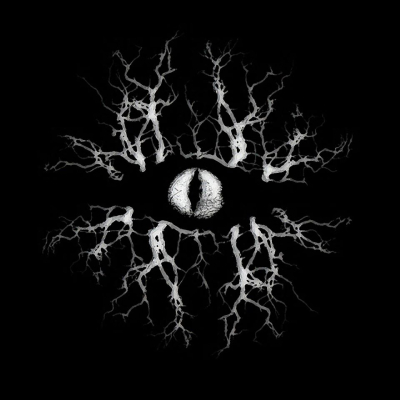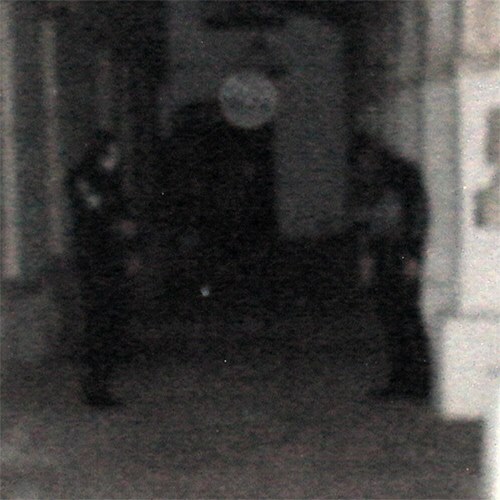Sacerdos (United States) 24/09/2014

Eventually, Sacerdos confirm what it usually is valid, that is that behind an interesting and unique release, there is one (or more) interesting and special personality. I spoke with Cassius the one of the two personalities behind the band and fortunately he didn’t limit himself solely in music but he talked to me also about his other social and political views, something that really makes an interview more special and valuable for the reader. Enjoy.
1. Hails Cassius, thanks for the interview. I got to know Sacerdos two years ago with “Vibromancy” release of 2012 but I haven’t found information the band or the two members, you and Brutus. Do you want to give me some information about Sacerdos and your journey into music since 2007?

Cassius:
To be honest, I've not really much relevant information to give. There's no particular reason that anyone should know us personally. If you're curious about who we are, listen to our music and leave it at that. What we believe, think and do is irrelevant in this little-understood universe. Our music since 2007 has correlated directly with our strong interest in learning and knowledge. By binding our life experiences with history, philosophy and theory, our musical creations are birthed.
2. How did you and Brutus meet each other and decide to start playing music? What instrument/instruments do you play and how good is your knowledge on it/them?

Cassius:
Brutus and I became friends during our teenage years and near-instantly had a mutual understanding of each other's displacement within this terrible society. As the various genres of extreme metal contain many themes that are most interesting and intellectual, it was natural that we were drawn to extreme metal and wanted to create our own. As far as instruments go, we share all responsibilities and both play whatever we feel like at the time. Though it has been a journey, I feel that we've finally developed musical skill that transcends the typical Darkthrone clones that exist in the thousands, at least. It's tough to say-- as a "musician," I am never completely satisfied with a release and always realize what I would have changed.
3. Your new album called “Divinativa” was released in April of 2014. This is an album oriented to a much different direction than the previous one. Do you want to tell me more about this album?

Cassius:
With every Sacerdos album, we like to follow a completely different direction. Divinativa delves into Thelemic symbolic interpretations of the natural world. Prior to writing the album, we drew three Tarot cards. Each song on the album is based on a different Tarot card, what and "who" each Tarot card represents, and how they're linked to the mortal plane.
4. You also don’t give any information about the composing of the music or the writing of the lyrics. Who is responsible for these ones? Composing music is a collaborative process or each of you composes alone?

Cassius:
Prior to composing each album, we choose an overall theme for the album. In many cases, these themes are completely irrelevant from album to album. For Relics, we drew inspiration from California's colonial/missionary history and the torment of Native Americans during that time period. A very depressive style arose from this theme. The following album, Judecca, drew influence from Dante's Inferno, and therefore the style became very different. Vibromancy was influenced by various elements of the Western Esoteric Tradition. Only by having an ideological inspiration are we able to write what we do. We both compose all music, lyrics and ideas collaboratively. Sacerdos will always remain Brutus and Cassius, and everything that is created always has input on behalf of one or the other.
5. How would you describe the music that you play? What does it mean to you? What secret urge pushes you to continue writing and what do you want to express through it?

Cassius:
Bands always like to come up with their own genre titles. I suppose it's rather pretentious, but I'm going to do it anyway. To be as ridiculously over the top as possible, I'd classify our music as "Occult Anarchist Historiographical Black Ambient Metal," or something. Sounds good to me. For me, I suppose the urge comes from a desire to express what I've learned, and an inner, uncontrollable obsessiveness. It's tough to say where it stems from-- sometimes I find the constant "urge" rather annoying. At times, attempts to carry out my schoolwork result in my only wanting to play guitar riffs instead. For both Brutus and I, we only want to express ourselves for ourselves.
6. Your music shows that apart from the obvious ones, Black Metal and ambient, you also have various other music influences. What other kind of music do you think that have influenced your music?

Cassius:
To be quite honest, there's not a ton of external musical influences beyond that (with some exceptions). Rather, the influences are drawn from other sources, such as books, mythology, history, etc. Enough said, I suppose, as you've read plenty of my boring and obnoxious ranting above.
7. For sure “Divinativa” is a weird and unique album, not suitable for everyone. I couldn’t appreciate this one. Are you satisfied by the reviews of fans and the press that it has received so far?

Cassius:
I actually very much appreciate the "weird and unique" outlook on our album. It's hard to achieve "weird and unique" in the over-inflated genre that is Black Metal in 2014. Don't get me wrong, there's still plenty of good projects out there, but a vast majority is merely recycled Scandinavian riffs (don't get me wrong, we have our share). So far, the reviews of this album have actually been the best we've gotten, surprisingly enough. However, we make music for ourselves more so than other people (hence the lack of interest in a record label and the bullshit that is bundled with it). We really don't care much for what people say about it. As an adult, I understand that our music is not everyone's cup of tea. I think the misunderstanding of this album is that it is intended to be an experience, rather than just an album that you can throw in and listen to any day of the week. Divinativa should be listened to ritualistically on an isolated beach at nightfall in adherence to nature and mysticism. Then, maybe, you'll understand its true purpose. Like any study of the esoteric, it needs to be studied and the principle unlocked. When you reviewed this album, I can't help but imagine that you were likely sitting at a computer hurriedly and anxiously listening to the album listening for the sake of a review. This album should not be treated in such a way. Rather, I'd argue that one should hike to an isolated spot in nature and contemplate the symbolism of ancient gods and the composition of the cosmos. I know albums shouldn't particularly be bundled with special circumstances or instructions, but we did it anyway.
8. Recently you informed me that you don't sell your music. You just offer it to anyone interested. Do you want to tell me more about this attitude?

Cassius:
"Money" and the disgusting desire for it are merely a pathetic and sickening illusion. Nowadays, Sacerdos strives to reveal the grand scheme of things and not perpetuate the system that we absolutely hate. America is defined by its greed, money and capitalism, and we try our best to steer clear of these things-- especially in regards to what we consider has been an illuminating journey of music and learning. Fuck America, fuck record labels, fuck money and fuck this bullshit exchange system that really doesn't need to exist. If someone genuinely wants a copy of our album to listen to, we will gladly distribute it as a gift and nothing more. All "money" at this point is merely an illusion created by a private corporation within America that has single-handedly ruined the world. The least we can do is avoid said private corporation as a middle-man in our artistic expression.
9. Have you begun composing and recording material for your next release? Will it be different than Divinativa? Do you want to give me more information about that? When do you plan to release it?

Cassius:
I've recently traveled across the country to meet up with Brutus in order to compose our new album. Unfortunately, our time was extremely limited, and we were only able to compose one song. In this case, we were unable to find the time to record it, so we're still working on the details of the recording process. So far I am very pleased with the composition, as it contains new elements yet also contains the elements that have always defined Sacerdos.
10. I know that you don't play live. Is that a matter of not having a complete lineup or it is you attitude not to perform live?

Cassius:
No. Live shows are not for us. Not the right atmosphere, and we don't want any band members. We've no real reason to go out and impress a bunch of people. So, I suppose it's a large combination of both.
11. What is your opinion about the Black Metal scene of the U.S.A.? Is there a strong and devoted underground? Are you in contact or do you cooperate with any musician or bands there? Are there any bands that you support and would like to suggest me?

Cassius:
I very much enjoy U.S.B.M. I suppose that makes sense, as I am an American. I know it's oftentimes debated by Europeans whether Black Metal from the United States is worth giving a damn about or not due to our lack of culture. However, this lack of culture is what I feel results in our good music. European bands oftentimes write lyrics based on the prime of their region's existence/culture (a primary example being the Viking themes utilized within many Scandinavian Black Metal bands). However, this is tough for Americans because they are a displaced and mixed society with a lack of context on history. Unfortunately, the United States is currently at its "height" or "prime". Any American with half a brain can see right through this illusion as manipulative, fake and disgusting, and therefore it results in a lot of depressive Black Metal (especially since American history and existence in modern American society is all rather depressing). I feel that these factors in many cases are also the foundation for the nihilist outlook in many American bands (Judas Iscariot, Leviathan, Xasthur, Krieg, etc.). The culture that has been formed around American Black Metal is that there is no culture except one that nobody wants to embrace. On the other hand, other American bands like Absu (and Sacerdos) delve into the occult/esoteric and ancestral/historical knowledge in order to establish a connection with nature, build a cultural identity and break from society. It's sad that nobody has written a book about it, really. Maybe I'll get around to it if I bring myself to care enough. We don't really cooperate with any other bands. From what I've heard, all of the other local bands don't like us and most people simply don't give a shit.
12. Do you want to sum up your near future plans and add anything for conclusion?

Cassius:
As stated above, Sacerdos will remain and we are releasing a new album. We're writing our next album on the vibratory, mythological and symbolic characteristics of the planet Saturn. However, Brutus has recently moved halfway across the country and therefore Sacerdos releases will likely become more sparse than they already are. With this in mind, we've both started solo projects to cope with our drive for creativity. My solo project will be entitled "Matantu" (after a destructive Native American death spirit). Brutus has begun an acoustic project called "Ghost of the Plains". So, we'll be plenty busy.Ba en Ra, meri Netjeru!Cassius
View The Gallery



